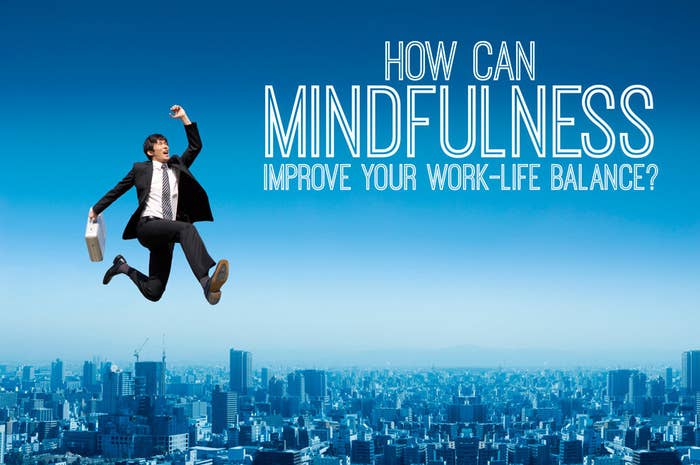
Mindfulness is a growing movement that encourages people to take a minute to take notice of their body and its surroundings. To get a little more information about mindfulness, what it is and isn’t, and how people new to mindfulness can begin practicing awareness, we spoke with Cheryl Jones, one of Aetna’s wellness program strategy leads, who is trained in mindfulness and completed the Teacher Development Intensive in Mindfulness-Based-Stress Reduction (MBSR).
Why should someone struggling with their work-life balance turn to mindfulness?
Cheryl Jones: When you’re at work you’re thinking about your to-do list at home. When you’re home you’re thinking about what needs to be done at work. Mindfulness helps you be present in the moment we’re in. It helps you better enjoy the pleasant moments so that you can get through the tough ones.

"Mindfulness helps you be present in the moment we're in."
How can someone practice mindfulness while at work?
CJ: You can pause and reflect before sending an email to someone. Try taking a few breaths before picking up the phone to call a customer or client. When you’re eating your lunch, turn away from your computer. Notice the color, smell, and taste of your food.
If I’m experiencing frustrations and miscommunications with a co-worker, how can mindfulness help?
CJ: Most of the time we’re preparing what we’re going to say while the other person is talking. Or we’re multitasking. We can pause, breathe, and be present in a conversation. Improved communication creates healthy relationships. And healthy relationships build a positive workplace culture.
"Improved communication creates healthy relationships."
Should companies introduce mindfulness as a standard office practice?
CJ: Absolutely. Mindfulness can help companies achieve their strategic priorities. Mindfulness helps employees respond rather than react in stressful situations. It helps build a resilient workforce. It helps create healthy relationships, and this builds trust. Trust and resilience are both critical for navigating change.

What elements of your work can mindfulness effect?
CJ: Mindfulness will help you gain clarity to solve problems. You’ll learn to be more flexible and creative. Multitasking less and focusing on one task at a time will help make you more effective. You’ll get more work done with less wear and tear.
For more information about mindfulness and more tips for practicing mindfulness every day, visit Aetnamindfulness.com.
This content is sponsored by Aetna. It is for general informational purposes only, and is not meant to replace the advice, diagnosis, or treatment of a physician or other health care professional.
